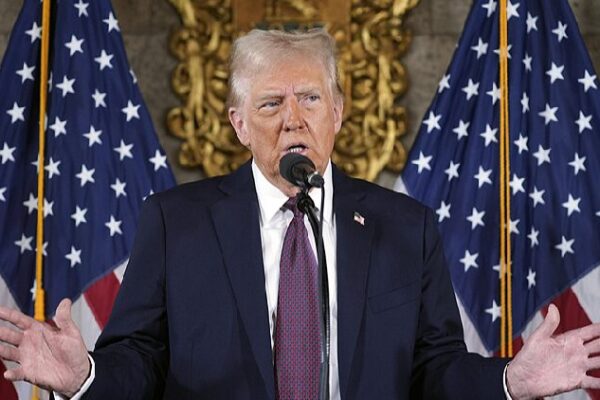Global netizens are expressing strong disapproval of the United States’ tariff policies, which they see as economic coercion that threatens the stability of global trade. A recent survey conducted by CGTN gathered the opinions of over 6,600 participants from around the world within 24 hours, revealing widespread concern over the U.S. tactics and their impact on international relations.
According to the survey, 70.4% of respondents believe that Mexico’s potential plan to impose tariffs on China is primarily due to pressure from U.S. tariff policies. Many see this move as Mexico’s attempt to deflect the negative effects of U.S. tariffs on its own economy.
An alarming 76.4% of participants are worried that if Mexico yields to U.S. pressure and imposes tariffs on other countries, it could set a harmful precedent, further destabilizing the global trade order. Additionally, 73% criticize the U.S. for using tariffs as a tool to economically coerce other nations, exacerbating negative ripple effects in international trade and undermining the stability of supply chains.
Mexican respondents, in particular, expressed deep dissatisfaction with the “America First” policy pursued by the new U.S. administration. Approximately 78.5% noted that the U.S. has consistently used economic measures to influence Mexico’s internal affairs, and 80.5% are concerned about the U.S. restricting Mexico’s development through tariff impositions. Sixty percent of Mexican respondents hold a pessimistic view of the future of U.S.-Mexico relations.
Moreover, 67% of Mexican respondents voiced significant concern over U.S.-China relations, highlighting apprehension about the impact of U.S. foreign policies on global economic development. A striking 76% believe that the continued pursuit of the “America First” policy will hinder global economic progress, while 62% think it will weaken the United States’ leadership in the international community.
The survey reflects a growing sentiment among global netizens that unilateral tariff actions and economic coercion can have far-reaching consequences, disrupting international trade and cooperation. As these concerns mount, there is an increasing call for collaborative solutions to maintain the stability of the global economy.
Reference(s):
CGTN Poll: U.S. escalates tariff coercion, netizens denounce bullying
cgtn.com








